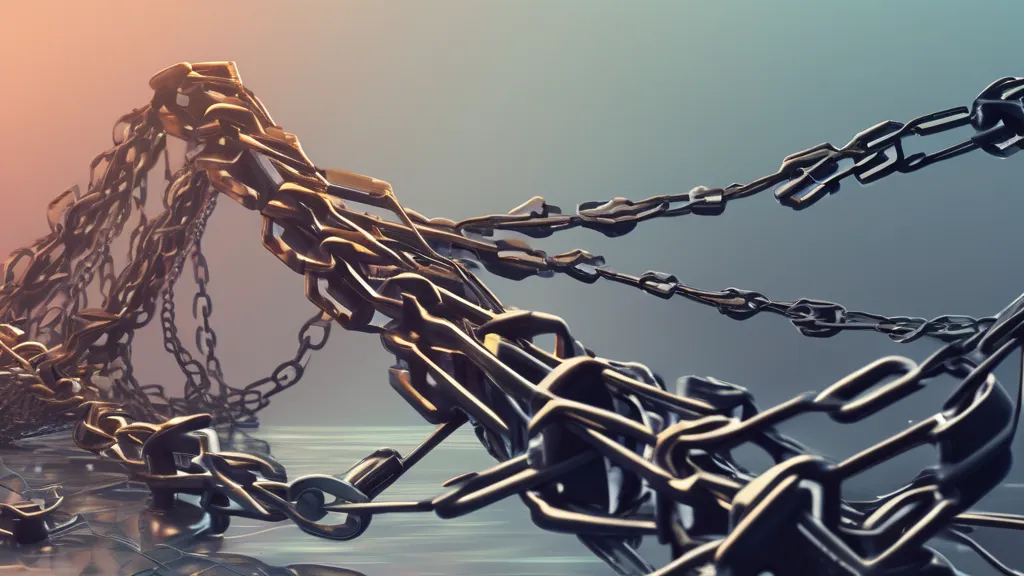The Looming Link Apocalypse: Google’s Decision to Delete Millions of Short Links
Exploring the Consequences of Google's Decision to Erase Decades of Digital Linkage

- Google to delete millions of goo.gl links, affecting online histories.
- Link shorteners rose to prominence in the 2000s, but their use has declined.
- Broken links can undermine the credibility of academic and historical records.
- Digital preservationists are racing to archive affected links.
- The decision highlights the power dynamics of Big Tech over digital archives.
Introduction: A Digital Cliff Edge Looms
In the vast, ever-evolving landscape of the internet, there’s a quiet but profound shift about to occur. Imagine clicking on a trusted link embedded in a research paper or a favorite blog post, only to find yourself staring at an error page. This isn’t a glitch; it’s a deliberate decision by Google to dismantle its goo.gl link shortener service, effectively erasing millions of links from the digital ether. This move, impacting an estimated 10 million links, as reported by the Common Crawl Foundation, marks a pivotal moment in the ongoing debate over digital preservation and the immense influence wielded by tech giants.
The Rise and Fall of Link Shorteners
Link shorteners emerged in the mid-2000s as a novel solution to a practical problem: the unwieldy length of URLs. Services like TinyURL and Bitly allowed users to condense long web addresses into more manageable formats, facilitating easier sharing, particularly on platforms with character limits like Twitter. Google joined the fray in 2009 with its goo.gl service, rapidly becoming a popular choice for users who appreciated the simplicity and trackability of these short links.
However, as digital communication evolved, the necessity for link shorteners diminished. Platform constraints relaxed, and the risks associated with disguised malicious links became more apparent. In 2018, Google ceased the creation of new goo.gl links, assuring users that existing links would remain operational. Fast forward to today, and this promise has been rescinded, leaving a trail of broken connections across the internet.
The Impact of Broken Links
The implications of Google’s decision extend beyond mere inconvenience. Broken links can severely undermine the credibility and utility of academic papers, news articles, and historical records. A study by the Harvard Law Review highlighted this issue, revealing that half of the links in Supreme Court opinions since 1996 no longer function as intended.
Jack Cushman, director of the Library Innovation Lab at Harvard Law School, emphasizes the critical role links play as the connective tissue of the internet. “There’s no doubt this is a real loss for the web,” Cushman asserts, underscoring the broader impact on information accessibility and digital history.
Archiving Efforts and Digital Preservation
In response to Google’s announcement, digital preservationists and archivists are racing against the clock to salvage what they can. Michael L. Nelson, a digital archivist and professor at Old Dominion University, acknowledges Google’s rationale that many of the affected links are seldom used. Yet, he argues that digital ephemera often holds unanticipated value, akin to a forgotten family photograph or a vintage advertisement.
Organizations like the Internet Archive and ArchiveTeam are mobilizing efforts to capture and preserve goo.gl links before they vanish. Tools such as the Internet Archive’s “Save Page Now” feature and WebRecorder offer individuals the means to archive their own digital content. For academic and legal purposes, services like Perma.cc ensure the permanency of web links, safeguarding them against the whims of digital decay.
The Broader Implications of Big Tech’s Decisions
Google’s decision to delete millions of short links highlights a recurring theme in the digital age: the dependency on Big Tech as stewards of our online histories. The vast repositories of data held by companies like Google, Apple, and Meta contain not only personal memories but also collective digital histories. The unilateral power these entities possess to alter or erase parts of this history raises ethical and practical concerns.
While Google cites technical and financial reasons for its decision—jokingly mentioned by Nelson as saving “dozens of dollars”—the broader ramifications are significant. The control over digital archives should arguably not rest solely in the hands of a few corporations, but rather be a shared responsibility involving public institutions, non-profits, and individuals.
Counterarguments and Industry Perspectives
Critics might argue that Google’s decision is a pragmatic response to a changing digital landscape. As the use of link shorteners declines and security risks increase, maintaining a legacy service may no longer be justified. From an operational standpoint, streamlining services could enhance overall efficiency and security.
However, this perspective overlooks the broader societal impact. The internet is not just a collection of data points but a living, breathing entity that reflects the human experience. The erasure of millions of links disrupts this narrative, potentially silencing voices and erasing histories that contribute to our understanding of the world.
Conclusion: A Call for Digital Responsibility
As we stand on the brink of this link apocalypse, the need for a balanced approach to digital preservation becomes increasingly urgent. While technological advancements continue to reshape the internet, the responsibility to safeguard our digital heritage must be shared across sectors.
Google’s decision serves as a stark reminder of the transient nature of digital content and the power dynamics at play in the tech industry. It prompts us to consider who controls our online histories and how we can ensure their preservation for future generations.
In this rapidly digitalizing world, how do we balance innovation with preservation? As individuals and as a society, we must advocate for greater transparency and accountability from tech giants, ensuring that our digital legacies are not at the mercy of corporate decisions.
References
Call to Action
Consider taking proactive steps to preserve your digital content. Explore tools like the Internet Archive’s “Save Page Now” or Perma.cc for long-term archiving solutions. Engage in discussions about digital preservation and advocate for policies that protect our collective digital heritage.